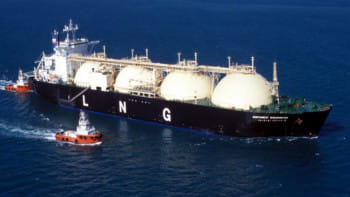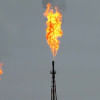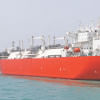Govt approves LNG import to address gas shortfall

The government has decided to import one cargo of liquefied natural gas (LNG) from the spot market by the first week of March through the direct purchase method to prevent a shortfall in gas supply.
The Advisory Council Committee on Purchase approved a proposal in this regard yesterday.
TotalEnergies Gas & Power Limited of Switzerland emerged as the recommended bidder, offering a unit price of $16.43 per million British thermal units (MMBtu), with a total purchase cost of Tk 787.99 crore, including VAT and tax.
Earlier on the same day, the Advisory Committee on Economic Affairs gave its consent to proceed with the direct purchase in a meeting chaired by Finance Adviser Salehuddin Ahmed.
If the LNG is not imported on time, the daily supply will drop from 900 mmcf to 600 mmcf, leading to reduced electricity and fertiliser production, an energy ministry official said
An energy ministry official stated that the ministry had floated tenders for LNG five times but had not received any cost-efficient proposals.
If the LNG is not imported on time, the daily supply will drop from 900 mmcf to 600 mmcf, leading to reduced electricity and fertiliser production, the official said.
So, the direct purchase method was chosen to prevent electricity shortages and ensure a steady gas supply to industries.
Additionally, the committee approved the import of 50,000 tonnes of wheat, which will be supplied by Aston Agro Industrial SA of Switzerland at $295.21 per tonne.
Two fertiliser import proposals from the industries ministry were also approved, namely the import of 30,000 tonnes of urea fertiliser from Fertiglobe Distribution Limited of the United Arab Emirates at $436.67 per tonne and 30,000 tonnes of urea fertiliser from Karnaphuli Fertiliser Company Limited of Bangladesh at $410.50 per tonne.
After the meeting, Salehuddin told reporters that the government is making every possible effort to ensure the availability of essential commodities during Ramadan.
"However, consumption patterns extend beyond Ramadan, and we are also preparing for that. You will see that we have taken steps to stabilise prices -- for example, by ensuring the availability of lentils and sugar. The price of sugar has already decreased significantly to a more reasonable level," he said.
"Our goal is to reduce inflation gradually as it cannot be decreased overnight. Last month, it dropped by one percentage point, and I hope it will come down to a reasonable level after Ramadan."
He added that the government aims to bring inflation down to 7-8 percent by June, when it will propose the next fiscal year's budget.
The country's Consumer Price Index fell to 9.94 percent in January from 10.89 percent in December, according to data released by the Bangladesh Bureau of Statistics.

 For all latest news, follow The Daily Star's Google News channel.
For all latest news, follow The Daily Star's Google News channel. 









Comments